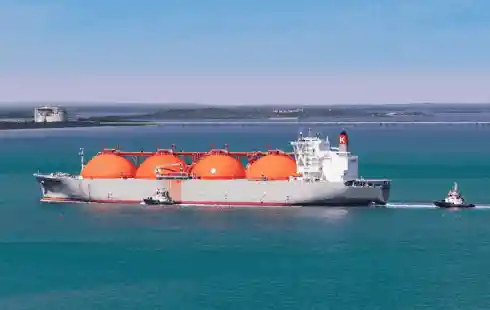
Fully Funded Scholarship Opportunity at the Bavarian International School for 2026-27
Section: News
 After considerable deliberation, European nations are finally poised to address the Kremlin's second-largest revenue stream. Two years and two months following the Russian incursion into Ukraine, the EU is set to sanction Russia's natural gas sector for the first time. In the 115th week of this aggressive war, a confidential draft of the proposed measures has been obtained by Süddeutsche Zeitung. Representatives of EU member states are scheduled to convene in Brussels this Wednesday to discuss these sanctions. However, it is anticipated that weeks may pass before a consensus is reached.
After considerable deliberation, European nations are finally poised to address the Kremlin's second-largest revenue stream. Two years and two months following the Russian incursion into Ukraine, the EU is set to sanction Russia's natural gas sector for the first time. In the 115th week of this aggressive war, a confidential draft of the proposed measures has been obtained by Süddeutsche Zeitung. Representatives of EU member states are scheduled to convene in Brussels this Wednesday to discuss these sanctions. However, it is anticipated that weeks may pass before a consensus is reached.
According to the outlined plans, imports of liquefied natural gas (LNG) from Russia will persist. The European Commission and the European External Action Service are advocating for a ban on the re-export of LNG from European terminals to other global destinations. This business, particularly lucrative for ports in Belgium, France, and Spain, involves accepting liquefied fuel and shipping it onwards to Asia. Nonetheless, intra-European transport of LNG would remain unaffected. Furthermore, European companies would be prohibited from participating in new LNG ventures in Russia under the proposed measures.
Impact on Russian Logistics
As of 2021, Russia was the primary gas supplier to EU nations, with Russian gas accounting for approximately 15 percent of European supplies, while liquefied natural gas constituted slightly over six percent. Experts suggest that while an embargo would severely dent Vladimir Putin's financial reserves, its implementation might prove unfeasible due to the requirement for unanimous agreement among the 27 EU member states.
Nevertheless, the proposed measures could pose logistical challenges for Russia even without an embargo. Petras Katinas, a sanctions expert at the Center for Research on Energy and Clean Air, highlights that a ban on re-exports would create significant logistical hurdles. It would render reaching Asian markets via the Arctic Sea route, one of the most expensive shipping routes globally, considerably more difficult and costly due to seasonal ice cover.
Expansion of Sanctions
In addition to targeting LNG ships, the draft also proposes measures against other vessels contributing to Russia's aggression against Ukraine. These measures entail denying access to EU ports and services for ships associated with exporting Russian oil, particularly those affiliated with the state-owned Russian shipping company Sovkomflot or operating within the shadow fleet established by Russia post-Ukraine invasion.
A third focal point of the sanctions package is the prohibition of financing for political parties, non-governmental organizations (NGOs), and media companies. Such organizations within the EU would be barred from accepting funding, donations, or other forms of support from the Russian state or its affiliates. The Commission cites attempts to manipulate public discourse in the EU as justification, warning against propaganda and disinformation campaigns that undermine democratic societies.
Consequently, the draft outlines EU activity bans for four media entities, including Voice of Europe, Ria Novosti, Rossiyskaya Gazeta, and Izvestia. These measures are intended to curb undue influence and safeguard democratic principles within the European Union.
Image by Garry Chapple from Pixabay

Section: News

Section: Arts

Section: Travel

Section: Arts

Section: Arts

Section: Arts

Section: Fashion

Section: Politics

Section: Fashion

Section: News
Both private Health Insurance in Germany and public insurance, is often complicated to navigate, not to mention expensive. As an expat, you are required to navigate this landscape within weeks of arriving, so check our FAQ on PKV. For our guide on resources and access to agents who can give you a competitive quote, try our PKV Cost comparison tool.
Germany is famous for its medical expertise and extensive number of hospitals and clinics. See this comprehensive directory of hospitals and clinics across the country, complete with links to their websites, addresses, contact info, and specializations/services.
Join us at the Kunstraum in der Au for the exhibition titled ,,Ereignis: Erzählung" by Christoph Scheuerecker, focusing on the captivating world of bees. This exhibition invites visitors to explore the intricate relationship between bees and their environment through various artistic expressions,...



No comments yet. Be the first to comment!